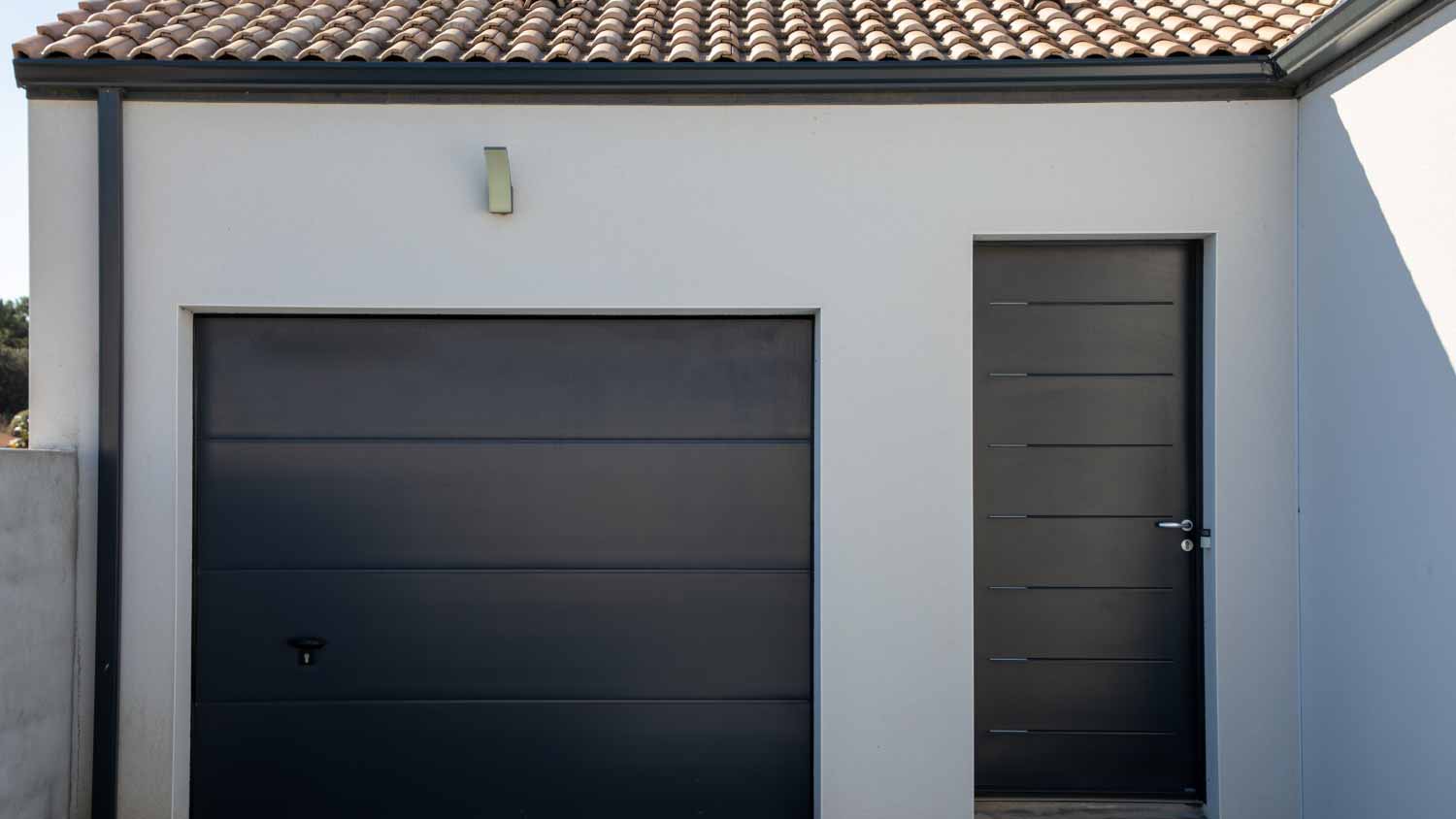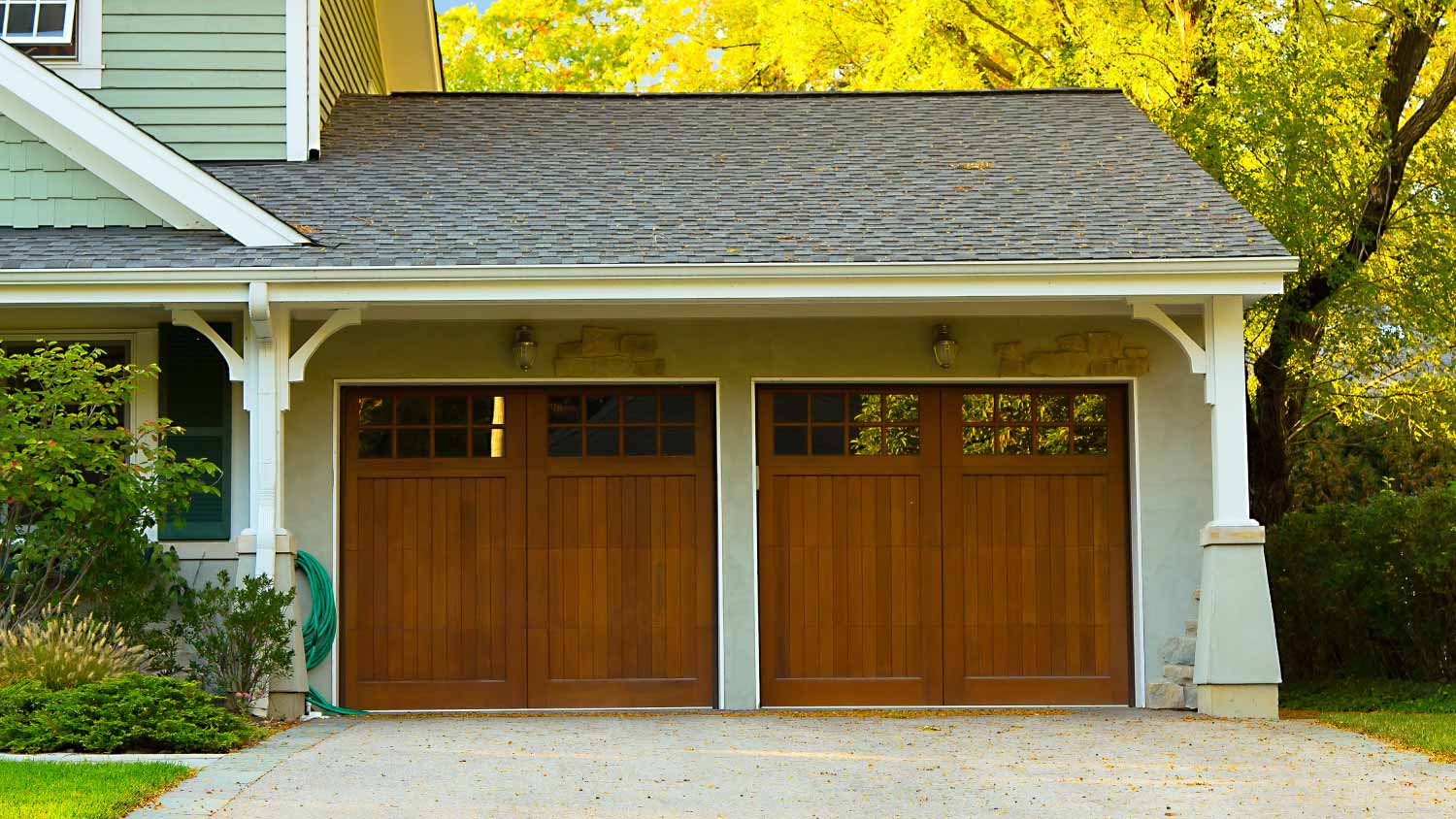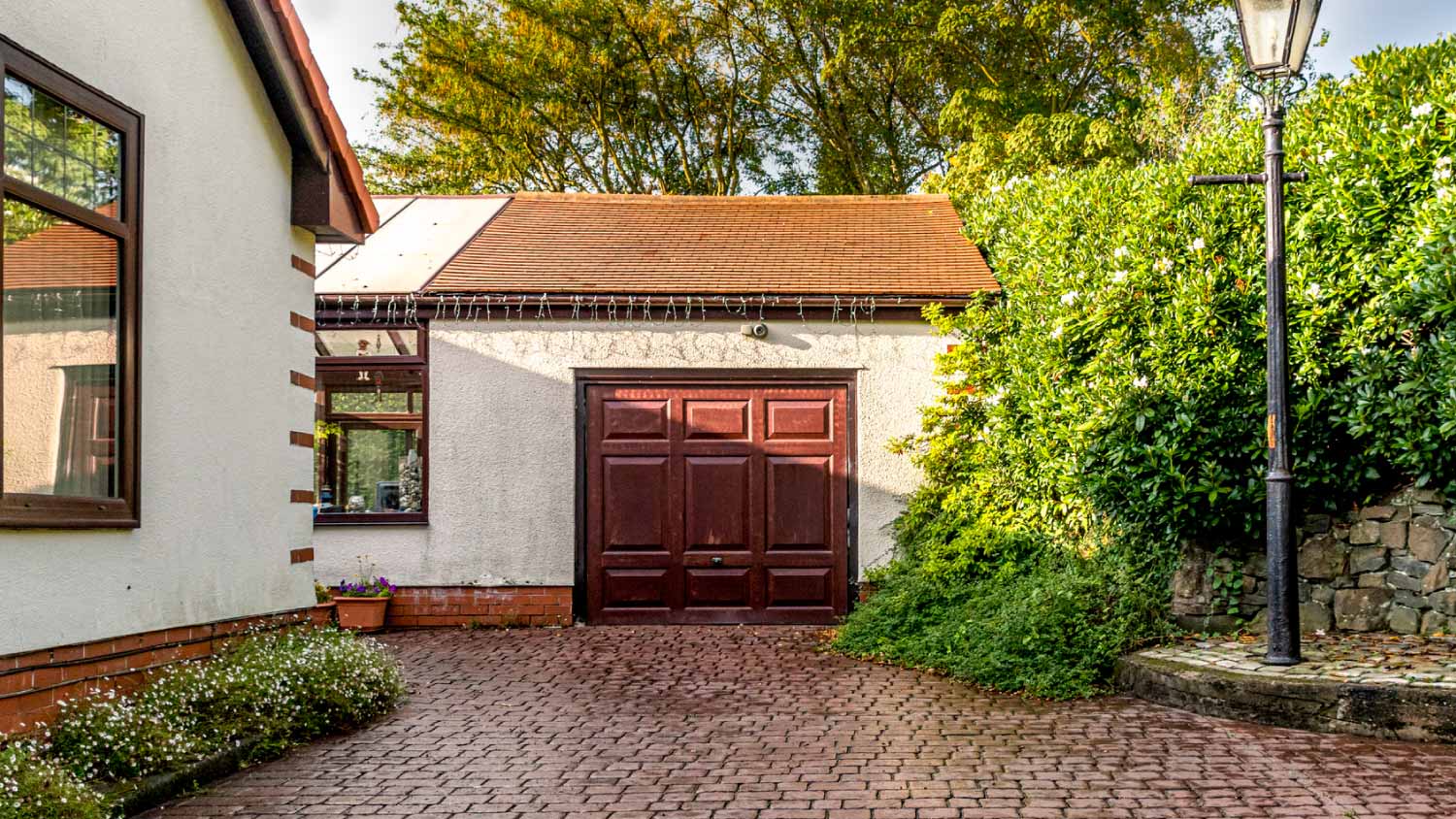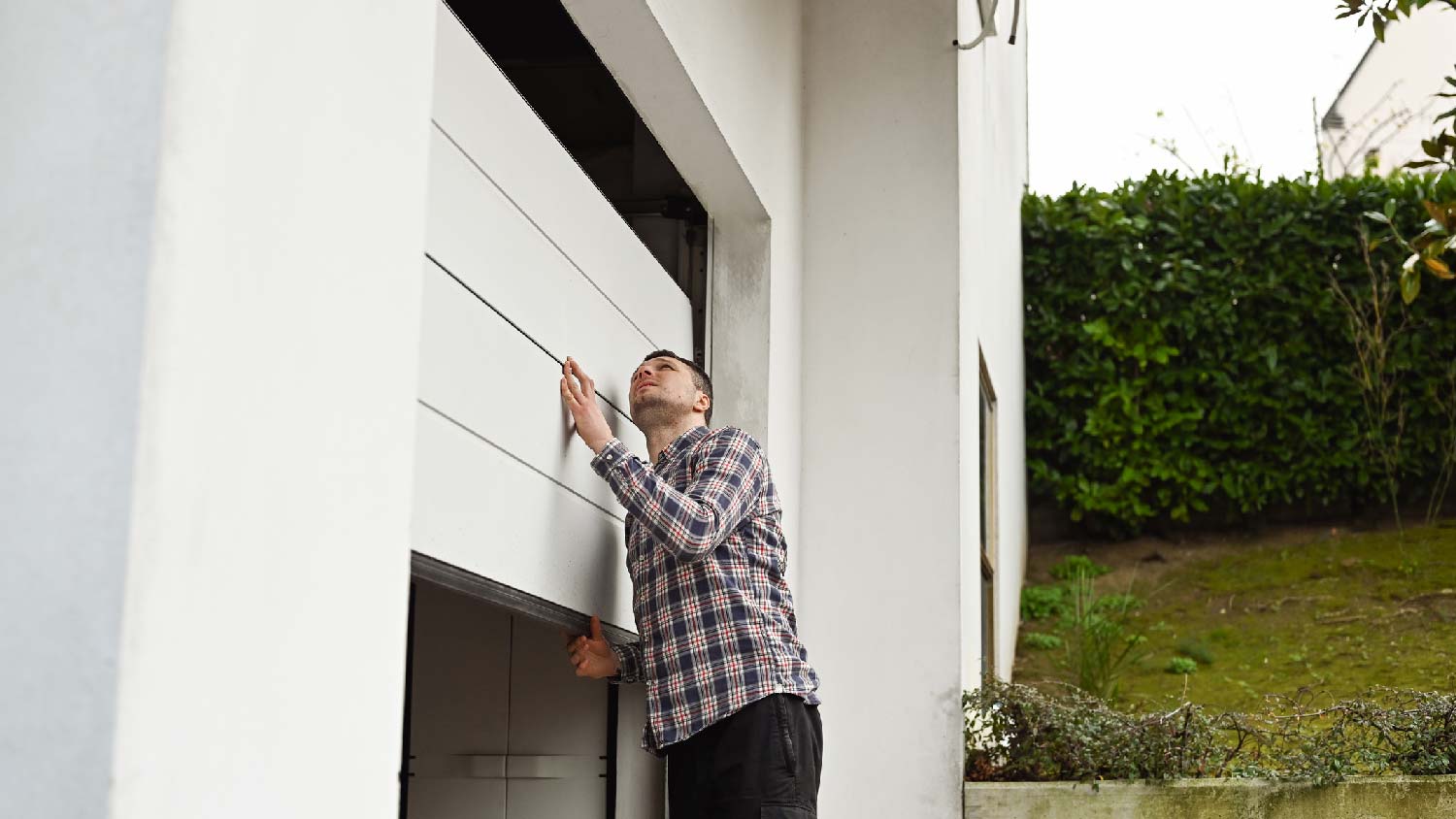
A side sliding garage door costs a pretty penny, but there are serious advantages vs. tilting garage doors. Learn what affects the cost of this seldom-seen door type.
Open your mind and doors to nine garage styles worth considering


When designing or renovating a home, garages don’t get as much thought (or love) as the rest of the house. Who could blame you? Being more concerned about where you sleep versus your car is a given, but you’ll want to circle back to your garage eventually. A garage adds between $12,750 and $33,150 to your overall home value. And there’s more to attached and detached garages than a standard sectional door that lifts up and down. Whether you’re looking to build your garage or remodel it, take a look at these nine garage door alternatives.

Before the car came the horse-drawn carriage. At the end of a work day, farmers would guide their horses and buggies into barns while the wealthy could afford to build carriage houses on their property. These barn doors would swing out to create enough space for the horses to trot inside with a carriage strapped to their shoulders. That’s how we get from parking your carriage to carriage doors for your garage.
Carriage doors, sometimes called barn doors, have a classic look to them. Traditionally, they were made with elaborate woodwork, iron hinges, and large handles. We’ve given up the cobblestone streets and carriages for paved roads and cars, and these changes have also translated to carriage style garage doors. The style—with decorative windows and eye-catching hardware—still thrives and compliments many homes. Unfortunately, some homeowners just don’t have the budget ($1,000 to $6,000) or space for wide-spanning garage doors. Instead, modern updates to carriage doors include duplicating the design of standard sectional garage doors.
Enhances curb appeal
Small windows offer extra garage lighting
Requires little maintenance
Allows for ceiling storage
Design offers added security
More expensive than most standard garage styles
Needs extra space to open
Some traditional styles aren’t automated (for mobility)

If you value your wallet over the look of your garage, sheet metal is a popular alternative to consider. The list of materials for this style is low—all you really need is sheet metal—and sheet metal is pretty inexpensive. As long as you’re skilled and comfortable cutting it to the right size, it’s a project you can DIY.
You’ll need a handle and hinges to make the door open. A roll-up door is hard to create without the help of a professional garage builder. Instead, most DIY homeowners have the door swing outwards.
Inexpensive
Relatively easy to DIY
Doesn’t look the best
Not airtight
Your options for a garage door are more than hunkering slabs of wood or metal. If you’re looking to transform your garage into a space that easily blurs the lines between indoors and outdoors, a roll-up screen can make it happen. It goes by many names—roll-up screen, roll-down screen, retractable screen, or power garage screen. Ultimately, it is a motorized garage door screen that provides protection, privacy, and shade to the cars, gadgets, or storage you’re keeping in your garage.
Whether you have a one-car or two-car garage, roll-up screens can be built to your specifications. By design, they often come with an aluminum frame and heavy-duty mesh to prevent tears and punctures. The garage door cost ranges from $100 to $1,300 for a retractable or fully-motorized screen.
Manual and motorized
Keeps out bugs and pests
Doesn’t take up storage space
Provides privacy and shade without sacrificing outside views
Can be DIY
Limited color options
Mesh material can fray
Some designs don’t provide complete privacy
Instead of lifting with your knees, as a traditional sectional garage door requires, a sliding door works exactly as its name suggests—it slides horizontally to open. It sits on a track and glides along the side of the garage, either internally or externally. The traditional style was popular in commercial spaces, but it’s since been adapted for the home. You’ll see some homes incorporating sliding doors with the country charm of a barn door design. Now homeowners can choose between one large paneled door that opens in one direction or a set of double doors that slide in opposite directions.
Door opens at full height
Less noise from motor
Easy to maintain
Easy to open
Expensive installation
Cold weather can cause damage to tracks
Not completely airtight

Glass garage doors are what Pinterest dreams are made of. Outside of the home, you could see this modern design at a restaurant, separating the inside from an outdoor patio section. The same concept is mimicked in homes, but the all-glass design is still widely recognized for garage doors.
Aluminum frames the glass panels, keeping the door lighter than steel or wood garage doors. Glass doors open up a space by letting light filter in, but they can prevent privacy, especially when living in an urban area with the potential for nosy neighbors. Alternatives like frosted or tinted glass are regularly used to find the perfect balance between light and privacy. Glass is expensive, and the average cost of a glass garage door ranges between $2500 and $8,000, not including installation.
Curb appeal
Natural light
Increased resale value
Durable
Expensive materials and installation
Poor insulation
Extra cleaning
Low privacy

Looks can be deceiving. You might think you’re looking at a wood garage door, but it might be fiberglass. Fiberglass garage doors are made with a steel core that’s surrounded by fiberglass and made to look like wood. The core adds strength and sturdiness while the lightweight exterior makes it easy to lift. Sometimes lumped in with faux wood garage doors, there’s nothing fake about the cheaper price tag and higher insulation value than its real alternative. The cost of a fiberglass garage door is around $1,400 to $3,000.
Easy to lift
Low maintenance
Can offer high insulation value
Won’t corrode or rot due to moisture
Looks like real wood
Can become brittle in extremely cold weather
Easily dented
Fiberglass cracks as it ages
Damage requires complete replacement

As its name would suggest, these doors tilt up to open. Unlike sectional doors that have several horizontal panels, this garage door alternative is made of one. While the lifting of the door may look cool—similar to the awe we feel when seeing butterfly doors on a car—the type of garage door opener you use may have a harder time lifting the door all at once. This is almost guaranteed if you choose a heavy material. And it may not be an issue for you, but it’s best to keep the area in front of your garage clear. Tilt-up doors kick out as they pivot to open so you’ll need a few feet of clearance to avoid any damage.
Easy to use
Usually inexpensive
Customizable design
Can’t park close to garage door
Security issues
Not ideal in extreme weather
Damage requires complete replacement
Cannot always be automated

If you merged a carriage door with an accordion, you’d get a design like a folding garage door. It’s often called a bi-folding door, but it can have as many as three or four panels. Similar to carriage doors, they open horizontally and don’t use any ceiling space. You will need extra space inside or outside your garage to accommodate opening and closing the doors. As they’re folding, the doors will eat up a few feet of space as they fold into the wall.
Curb appeal
Allows for ceiling storage
Design offers added security
Can control how much the doors open
Needs extra space to open
Can be difficult to maneuver in bad weather
More expensive than other garage door styles

Wood is a classic garage style but committing to the look also means a commitment to the price and maintenance. Although it's highly customizable, wood is one of the most expensive garage doors costing up to $10,000. Faux wood is significantly less ranging between $800 and $6,100.
Many of the wooden garages that line the streets of homes aren’t actually wood. They could be fiberglass but more likely than not, you’re looking at a steel or aluminum garage door covered in a wood grain overlay. How real it looks depends on the craftsmanship of the manufacturer. Faux wood garages offer extra durability, insulation, and noise control.
Looks like real wood
Durable
Long-lasting
High insulation value
Keeps out noise
Lightweight
Quality determined by manufacturer
Less expensive than wood but more expensive than others
Fades from sun exposure
From average costs to expert advice, get all the answers you need to get your job done.

A side sliding garage door costs a pretty penny, but there are serious advantages vs. tilting garage doors. Learn what affects the cost of this seldom-seen door type.

Want to ensure your home is secure for storm season? We discuss hurricane garage door costs and which factors influence the price tag.

Your home's garage door cable repair cost depends on several factors, including the cost of other damage that may be the result or the cause of the failure.

If your garage door isn’t closing right, it might be time to align your sensors. Learn how to align garage door sensors in nine easy steps.

If you want to install or replace your garage door, your contractor will need some information first. These garage door questions will get you started.

A garage door sensor not working can be from obstructions, debris, electrical issues, and more. Read on to learn why your garage door sensors are not working.